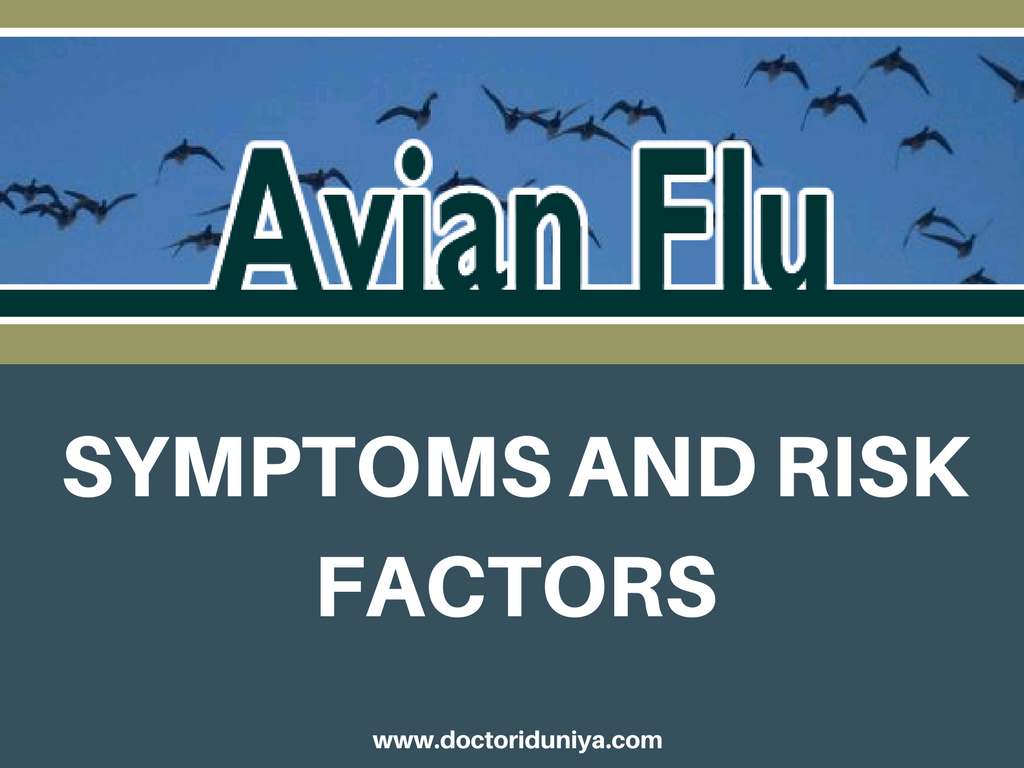Avian Influenza(Bird Flu) - Symptoms and Risk Factors

What is bird flu?
Bird flu which is also named as avian (bird) influenza is a disease caused by a viral infection that infects not only birds but may also infect humans and other animals.
Bird flu or H5N1 is the most common type of flu that is deadly and life threatening to birds. According to WHO,the first case of avian flu was discovered in 1997 that has taken life nearly 60% of the infected people.
SYMPTOMS
What are the symptoms of bird flu?
If you experience these symptoms you may have an H5N1 infection.
• Diarrhea
• Cough
• Respiratory difficulties
• Fever
• Headache
• Muscle aches
• Anxiety
• Runny nose
• Sore throat
CAUSES
What causes bird flu?
H5N1 is an avian influenza virus that causes bird flu. Avian influenza occurs naturally in domestic poultry. The disease spreads to humans by coming in contact with infected birds, their feces, nasal secretions or secretion from mouth or eyes. There is a false perception that consuming properly cooked meat or eggs causes bird flu, but it is not true.Food cooked at 165ºF is considered safe.
RISK FACTORS
What are the risk factors?
You are at greater risk of getting H5N1 if you are:
• a poultry farmer
• a traveler visiting affected areas
• exposed to infected birds
• consuming undercooked poultry or eggs
• a healthcare worker caring for infected patients
• a member of an infected person
DIAGNOSIS
How is bird flu diagnosed?
These are the following tests to diagnose bird flu.
1. white blood cell differential
2. auscultation (a test that detects abnormal breath sounds)
3. nasopharyngeal culture
4. chest X-ray
Additional tests can be performed to assess the functioning of your heart, kidneys, and liver.
What’s the treatment for bird flu?
Different types of bird flu can cause different symptoms. As a result, treatments may vary.
Antiviral medication – It should be given within 48 hours after the symptoms first appear.
Medical Complication-
Some potential complications include:
• sepsis
• pneumonia
• organ failure
• acute respiratory distress
PREVENTION
How is bird flu prevented?
Here are some ways you can minimize your risk by avoiding:
• open-air markets
• contact with infected birds
• undercooked poultry
Practice good hygiene and wash your hands regularly.
"BE INFORMED, BE HEALTHY"
Comments
Post a Comment